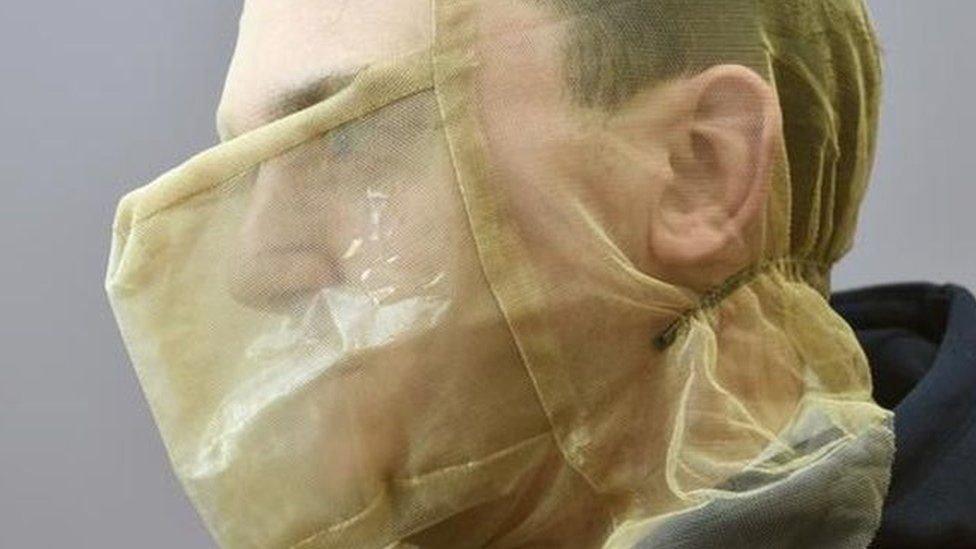PSNI spit hoods use on young people 'should be banned', report says
- Published

The hoods are made of a mesh-type fabric and are placed over an individual's head to prevent them biting or spitting at officers
Police use of spit hoods on children and young people should be banned, a review by the Police Ombudsman has recommended.
Marie Anderson also said she was concerned at the "aggressive and overbearing conduct" of officers in some cases.
The use of the hoods was introduced last year, at the start of the Covid pandemic.
In the first six months of 2021, hoods were used on 69 occasions.
Six of those occasions involved children under 18.
The PoIice Service of Northern Ireland (PSNI) said it was revising its policy on the use of hoods on children.
"We have taken into consideration comments made within the review on the use of spit and bite guards on young people under the age of 18," PSNI Acting Assistant Chief Constable Sam Donaldson said.
"As a result, we are developing new service instructions and revised policy which will be issued to all officers and staff".
Made of mesh and plastic, the hoods can be placed over the head of an individual to prevent them coughing on, or spitting and biting officers.
'Cause for concern'
Amnesty International in Northern Ireland, which has previously cautioned against the use of spit hoods, has called for them to now be withdrawn from use..
"This report by the Police Ombudsman has highlighted a series of problematic behaviours by the police in their use of spit hoods, particularly but not only when used against children," Amnesty director Patrick Corrigan said.
He said until the PSNI could produce convincing evidence for their use "these devices should be withdrawn from use in Northern Ireland immediately".
Marie Anderson says she is concerned at the "aggressive and overbearing conduct" of officers in some cases.
Mr Donaldson said the PSNI had accepted all 14 policy recommendations made by the ombudsman.
He said steps were being taken to address the Ombudsman's concerns, including around the standards of behaviour by officers.
He added: "These steps will include updated policy, a new e-learning package and new instructions for both line managers and local senior officers to quality assure the deployment of spit and bite guards".
'Lawful and proportionate'
Mrs Anderson said "for the most part", the deployments by the PSNI were "lawful and proportionate".
However, having looked at police-worn body camera footage, she added she was concerned about some officer behaviour.
"A number of the cases in my review have highlighted a general trend in conduct by officers that is not related to the deployment of spit and bite guards and is indicative of aggressive and, at times, oppressive and overbearing conduct," she said.
"I acknowledge that the statistical base is limited, however the conduct I have viewed on video is a cause for concern."
"In my view, the use of spit and bite guards on children and young persons should be prohibited."
Related topics
- Published23 November 2020
- Published24 June 2020